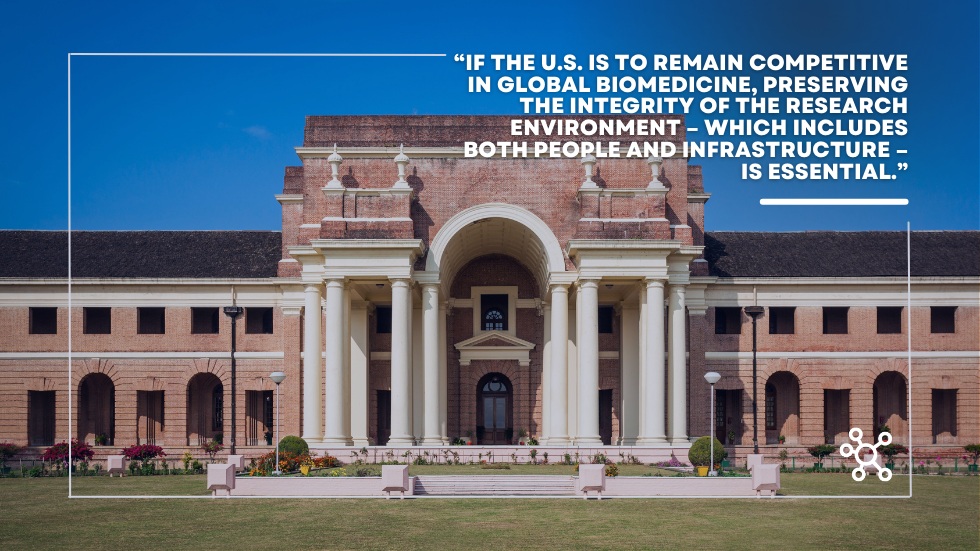To find gold, you need to know where and how to look
Sometimes you get lucky: you interview a bunch of candidates, one of them stands head-and-shoulders above the pack, and there’s no decision to make. Ready, aim, hire. More often than not, though, you must choose between several candidates who seem fairly equally matched. Do you go for the person who exudes warmth and confidence and would clearly fit into your organization? Or do you opt for the shy young candidate with a patent in their resume? Or maybe the all-round achiever with connections in high places?
Criteria that count
Let’s backtrack a little. If more than one person will be weighing in on the hiring decision, you need to make sure you all agree on the important criteria before starting the search.1 Otherwise, you’ll likely find yourselves clashing about the choice.
This raises the question: which criteria have the greatest value in the life sciences? A 2019 BioSpace survey identified three priorities: 1
- Recent (and relevant) work experience: Fully 91% of survey respondents put a premium on this criterion. It stands to reason: recent experience in a similar role or organization puts a candidate in the mindset to perform well at the starting gate.
- Strong communication skills: Prized by 65% of respondents, such skills signal an ability to argue for ideas and stick-handle the conflicts that inevitably arise in group settings.
- Leadership skills or potential: If one defines a leader as “someone who inspires positive change and motivates others,” it’s not hard to understand why hiring teams value this quality—even in positions that don’t involve direct responsibility for other people.
For Robert Ward, who saw the Boston biotech company Radius Health grow from 6 to over 600 employees during his 4-year tenure as CEO, the list should also include a track record of success, which he defines as “delivering on projects and working to create a culture that supports diversity, collaboration and innovation.”2
What about criteria that matter less?
Notably, only 24% of respondents to the above survey placed a high value on holding an advanced degree, though the importance of those letters obviously depends on the nature of the position. A further surprise: A mere 8% viewed attendance at a highly recognized educational institution as key. That Stanford insignia may impress, but it won’t necessarily rescue a candidate who falls short in other respects. Talent acquisition experts also caution against “fear-based” hiring—a mindset that may include overreliance on people you know or an inflexible commitment to hire fast.3
The search for a researcher: asking the right questions
If you’re looking for a biotech researcher, guidance from LinkedIn Talent Solutions4 can help you zero in on the right interview questions—and the responses that signal competence. To get a feel for a candidate’s expertise in study design, for example, you could ask: “What are some factors you consider when designing research studies?” Response themes to look for include sensitivity to risk factors and budgetary constraints. And a question like “If you were given X sample and X chemical, what tests would you run?” will put anyone who lacks technical skills on the spot. See https://business.linkedin.com/talent-solutions/resources/interviewing-talent/biotech-researcher for the complete interview guide.
When looking to fill a role, it is also important to consider the environment in which the new hire will be working in. Sometimes the most outgoing candidate is not always the right fit. If the role you are filling does not require excellent people skills or an ability to lead, don’t always lean towards the candidate who is highly confident in their ability to communicate and take charge. For example, when hiring a research associate who will work exclusively in the lab, you don’t want to rule out someone who may be more introverted. They may be a standout candidate as they bring an arsenal of lab experience to the table, but not necessarily wow you with charisma in the interview process. Assessing the environment you are hiring in and the true requirements of the job will give insight to what skills your candidates should excel in.
Whether you need someone next month or next year, working with a specialized biotech can help you save time without sacrificing thoroughness. Experienced biotech recruiters know the right people—and the people who know the right people. Their industry-specific expertise and tools cut through the laborious process of advertising, screening, and interviewing a string of candidates who may not match the required profile.
At Sci.bio, we make good on our promise of high performance, flexibility, and speed. We invite you to contact us to learn more.
References
1. Parker P. How to identify a quality life sciences candidate. BioSpace. Oct. 8, 2019.
2. Ward RE. CEO spills the secret to attracting, retaining biotech talent. PharmaExec.com. August 13, 2018.
3. Have you done your research? 4 hiring blunders that cause biotech companies to miss out on the best science and research specialists. Painless Hire.
4. Top hard skills interview questions for biotech researchers. LinkedIn Talent Solutions.





